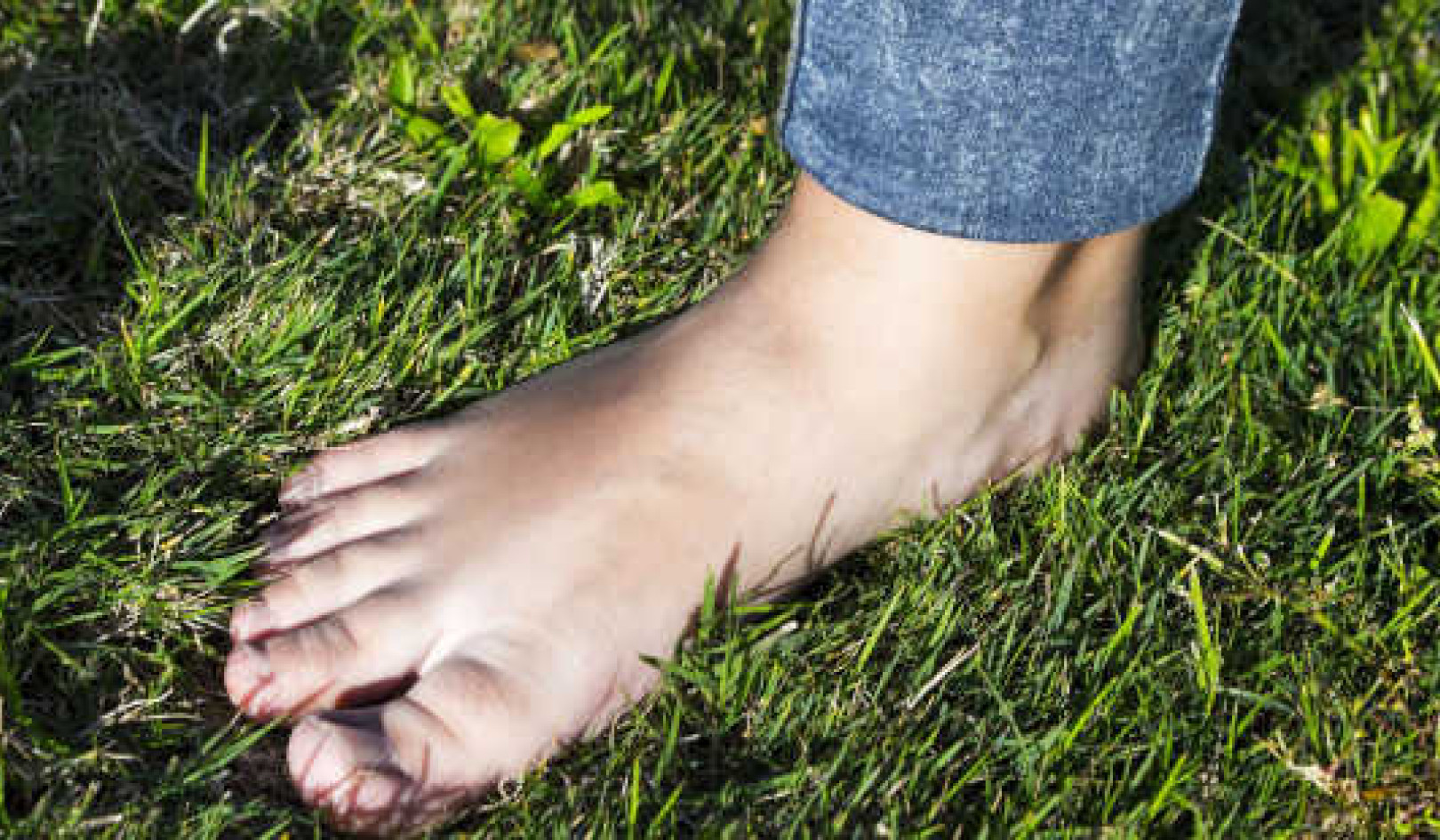
Get walking people. Peter Thoeny, CC BY-NC-SA
Cardiovascular disease (CVD), the catch-all term for diseases affecting the heart and blood vessels – including heart attack and stroke – is the leading global killer. And bad heart health can lead to health impairments from loss of body function to mental disturbances that can greatly affect our quality of life.
We’re constantly told to eat this and do that in order to keep ourselves healthy. We’re familiar with all the warnings that come with drinking alcohol, smoking and eating junk food.
According to the World Health Organisation the top ways to lower the risk of developing cardiovascular disease are: reduce smoke inhilation; make healthy food choices; be physically active and therefore reduce your body mass index; and control blood pressure and cholesterol. In the UK, NICE recommends reducing salt and fat in foods; using active modes of transport such as walking; and removing stressful living environments. In the US, the CDC also recommends going for regular health check-ups.
So from my research looking at studies on CVD, what would I say are the top five things that could likely delay or even prevent heart disease?
1. Annual check-ups and family history
In Australasia, Japan, India, Nigeria and Sweden studies that took a single snapshot of a sample of the population, suggested only about 50% of people went for health check-ups.
A correlation has been observed between an awareness of regular health check-ups and the development of strokes. Of course, this may be because people who get regular check ups could also have a greater general awareness of health to keep themselves healthy. But such awareness is still generally low – despite heart disease being a big killer – and this may also limit people’s knowledge of any family history that might indicate later problems.
In recent years, the UK has issued calls for regular health check-ups for different populations. In Scotland this year, an estimate that baseline health checks for all apprentices entering industry suggested it would yield a saving to the Scottish economy of more than £30m over the next decade.
2. Eat healthy foods and limit alcohol
Diets are complex in human societies and different foods have been observed to increase or decrease risk of cardiovascular disease. Since the 1990s, the Mediterranean diet must be one of the most promoted. The Mediterranean diet is in particular encouraged by the US Mayo Clinic because of these key components: it includes primarily plant-based foods, such as fruits and vegetables, whole grains, legumes and nuts; replaces butter with healthy fats, such as olive oil; uses herbs and spices instead of salt to flavour foods; limits red meat to no more than a few times a month and substitutes fish and poultry at least twice a week. It also promotes drinking red wine in moderation (if alcohol is drunk).
However, the Mediterranean diet is based on Western food and ingredients. From an Eastern perspective, the Paleolithic diet is characterised by more protein and meat, fewer carbohydrates and more non-starchy vegetables, high fibre. It excludes dairy products, grains, legumes, processed oils, refined sugar, salt, alcohol and coffee.
3. Keep cleaner and quieter environments
We’ve known for decades how harmful smoking and second-hand smoke, particularly in homes, can be for heart health. There have been already been bans on smoking in public spaces and advertising tobacco products in many countries and reduced hospital admissions have been recorded. Banning smoking in the home as well has also been found to be beneficial.
Living in adverse neighbourhood conditions has also been observed to be linked to greater prevalence of CVD. This includes environmental factors such as air and water quality, noise, traffic and rubbish, but also links with stress factors such as harassment, discrimination and violence.
A recent study observed that adolescents in the UK who were dissatisfied with their neighbourhood, for whatever reason, were more likely to engage in unhealthy behaviours and lifestyle. While housing was hypothesised to play a role in heart health, air quality, room temperature, heating use and chemicals could matter too.
In households, sleep is essential for biological functioning. Deprived sleep can affect blood pressure and microvascular function (a form of blood vessel disease) and consequently increase cardiovascular risk.
Poor housing, neighbourhoods and workplace are also where stress and violence could also trigger the development of CVD symptoms – and women could be particularly affected. Policies for upgrading and regenerating areas, as is happening in Scotland, could lower risk.
4. Exercise and use public transport
Obesity is a strong risk factor for many chronic diseases, including CVD, and is growing alarmingly in every country. Lots of scientific research has shown how being physical active could help lessen CVD risk.
British and Indian researchers recently documented how active travel by walking, biking or using public transport could have helped reduce CVD risk. By doing so, it could also help reduce CO2 emissions and clean the shared breathing air in urban areas.
5. Avoid artificial products with chemicals
Environmental chemicals, which could disrupt our hormones and energy metabolism have been linked to CVD risk. The European Commission says it is committed to combating use of such chemicals.
We come into contact with these chemicals on a daily basis from multiple sources including cans, bottles, containers, plastic products, and canned food. While there is often debate about the dangers of some chemicals and/or amounts of exposure, certain chemicals are associated with conditions such as high blood pressure.
While governments implement policy to minimise the use of chemicals in industry, we as consumers could learn to choose more natural products to avoid such exposure – although the affordability of these kinds of products might be a concern.
In addition, more use of green space has been found to benefit heart health in Canada, Denmark, Lithuania and New Zealand. Exposure to natural environments can increase vitamin D, which is also important for heart health – in the same way as exposure to a certain amount of sun. It is not only associated with metabolic function but also good sleep patterns – the kinds of things that impact on CVD risk. So far, taking vitamin D supplements is neither proven to be beneficial nor harmful for CVD.
Ultimately, managing heart health is a lifetime effort. Ignoring strong potential risk factors may put our health at risk over time. Complications linked to CVD can also be difficult to manage. The best advice then would be to start thinking about prevention early – particularly if you think you’re at risk – and embed good behaviour patterns into daily life. This goes for us individually, but also for our education systems and wider culture.
This article was originally published on The Conversation.
Read the original article.
About the Author
 Ivy Shiue is Assistant Professor at Heriot Watt University. Ivy Shue has come from diverse backgrounds cross medical, epidemiological, health, social, environmental, toxicological, psychological, biometeorological, educational and design sciences and engineering and had education and research works in Austria, Australia, Canada, England, Germany, Inner Mongolia, Scotland, Sweden, Taiwan and USA. She's started research works since 2006 and been quite active in scientific fields lead-authoring over 60 publications in scientific journals (via Google Scholar, ResearchGate or Pubfacts). A population science approach has brought her to further examine current social and individual systems and to uncover the hidden "bugs" for repair.
Ivy Shiue is Assistant Professor at Heriot Watt University. Ivy Shue has come from diverse backgrounds cross medical, epidemiological, health, social, environmental, toxicological, psychological, biometeorological, educational and design sciences and engineering and had education and research works in Austria, Australia, Canada, England, Germany, Inner Mongolia, Scotland, Sweden, Taiwan and USA. She's started research works since 2006 and been quite active in scientific fields lead-authoring over 60 publications in scientific journals (via Google Scholar, ResearchGate or Pubfacts). A population science approach has brought her to further examine current social and individual systems and to uncover the hidden "bugs" for repair.
InnerSelf Recommends:
Natural Remedies for Inflammation: A Practical Guide...
by Christopher Vasey N.D.
 In this practical guide to natural remedies for inflammation, naturopath Christopher Vasey explores 18 anti-inflammatory herbs, as well as 15 other natural substancesl. He explains which conditions each addresses most effectively, proper dosage, and the best methods of ingestion. Dr. Vasey explains how, like fever, inflammation is a defensive reaction of the body and also carries out a cleansing process, which natural remedies support but pharmaceuticals can destabilize by contributing more toxins to the internal terrain. He examines 50 of the most common inflammation-related ailments--such as allergies, asthma, conjunctivitis, bronchitis, sinusitis, cystitis, tendinitis, arthritis, eczema, and sciatica--and explains which medicinal plant or food supplement is best suited to safely alleviate unpleasant symptoms while helping the body complete the healing the inflammation was initiated to perform.
In this practical guide to natural remedies for inflammation, naturopath Christopher Vasey explores 18 anti-inflammatory herbs, as well as 15 other natural substancesl. He explains which conditions each addresses most effectively, proper dosage, and the best methods of ingestion. Dr. Vasey explains how, like fever, inflammation is a defensive reaction of the body and also carries out a cleansing process, which natural remedies support but pharmaceuticals can destabilize by contributing more toxins to the internal terrain. He examines 50 of the most common inflammation-related ailments--such as allergies, asthma, conjunctivitis, bronchitis, sinusitis, cystitis, tendinitis, arthritis, eczema, and sciatica--and explains which medicinal plant or food supplement is best suited to safely alleviate unpleasant symptoms while helping the body complete the healing the inflammation was initiated to perform.
Click here for more info and/or to order this book on Amazon.























